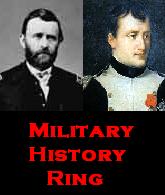Introduction
When the Versailles Treaty was signed in Paris in 1919 formally ending the First World War, there were some forwarding thinking observers who saw in the document the “seeds of the next war.” These foreign policy soothsayers saw the punitive measures of economic sanctions and harsh military restrictions leveled against The Second Reich, not to mention the infamous “War Guilt Clause”, as the fostering agents of German resentment. While Germany was far from being an innocent bystander in the outbreak of the Great War and was undeniably a central player, indeed a Central Power, in the unfolding drama, it should be remembered that the geopolitical atmosphere of the day was ripe for the tragic harvest that was ultimately reaped. Yes, Germany was very much responsible, but she was not alone in that responsibility. However, looking back even further in time it is possible to perhaps ascribe to Germany a special level of blame. Some five decades prior to the assassination of the Archduke of Austria, Franz Ferdinand, and the events put into motion by that act, including the German invasion of France, the quest for expansion and hegemony was preparing to embark from the halls of Prussia. Prussia was the largest and most dominant of the fractured German states, save the multi-national empire of Austria. Steeled by its military resolve in the Seven Years War and flush with the territories granted to it on the Rhine by the Congress of Vienna, Prussia looked to unite its own territories and even all of those little Germany’s not under the Habsburg crown (or perhaps even parts of those) into one national German empire. To that end, the Prussian Minister-President appointed in 1862, Otto von Bismarck, began a series of machinations that would culminate in that result, doing so with “blood and iron.” Through a series of carefully staged and swift wars, Bismarck’s plan was put into action. The final step in making a German empire a reality, and the battle with the most far reaching future ramifications, was the Franco-Prussian War of 1870-1871. What were the specific causes of that conflict and what exactly were those far reaching ramifications? As previously mentioned a desire for German empire, especially by Bismarck, played a leading role but the conditions for such an adventure had to be present…and they were. Political situations in both Prussia, and the greater Germany, and in France helped pave the way to conflict, as did the aggressive foreign policies of those nations, and indeed, of Europe as a whole. These facts together with and relating to, the succession of the Spanish crown sparked the Franco-Prussian War. When the dust had settled, the results would have so lasting an impact, especially in terms of continued animosity between Germany and France and the upset of balance of power politics in Europe, that Henry Kissinger would be lead to call the conflict the start of the “modern Hundred Years’ War that did not end until 1945.”
Napoleon III & France
In 1870 France was ruled by the Second Empire of Napoleon III, whose rise to power must have seemed as stunning to him as to anyone. In the intervening years of the rules Napoleon I and Napoleon III, France was controlled by monarchies. During these years, because of his family relation to the more famed Bonaparte, Louis-Napoleon was forbidden from living in France. For much of his life he was an itinerate wannabe, living at various times in England, Germany, Italy, and the United States, attempting to trade on his famous uncle’s name. Much of his globetrotting days were spent in Italy where he conspired with the Carbonari for the unification of the peninsula. More than once he attempted to return to France, the first time as little more than a tourist, but the second in an attempt to foster a Bonapartist rebellion. Incarcerated after this failed adventure, he escaped from prison disguised as a construction worker. After “failure at everything he turned his hand to” his break finally came in 1848 when a revolution in France had swept aside the monarchy and reforms allowed him to return.[1] A French Republic had been established and it would need a president. Putting his name recognition to good use, Louis-Napoleon “won [the election] by a landslide in December 1848, receiving 74 percent of votes cast.”[2] Domestic politics in France, as well as Prussia, during this period were marked by the competing principles of the emerging liberal-social ideals and the traditional conservative interests of the aristocracy and military. From the start of his tenure as president, Louise-Napoleon demonstrated a political deftness in being able to play both sides. To the conservatives he offered sound economic policies and support for the military and to the liberals he offered social reforms and public works projects to improve French infrastructure and provide jobs. Things were going well in France, but the constitution of the Second Republic did not allow the president to run for a second term. Louis-Napoleon, in the interest of preserving prosperity staged a coup in 1852, allowing him to remain in power and within a year dissolved the republic, established the French Second Empire and proclaimed himself Emperor Napoleon III. Even after this brash maneuver, he still maintained popularity. However, over time his authoritarian rule came to be resented by the liberals and many in the middle class and domestic political unrest started to simmer.
In the realm of foreign policy Napoleon III is remembered for a number of adventures, some successful and some having unforeseen and detrimental consequences. He successfully concluded an alliance with England to oppose and defeat Russia in the Crimean War, but had also foolishly embarked on a military adventure in Mexico which ended disastrously. As emperor he also continued to meddle in Italian politics, alternately supporting and condemning the unification of the peninsula. He “secretly agreed on a joint campaign by France and Sardinia to expel Austria from Italy and to establish an Italian federation of four states under the presidency of the pope,” (Columbia Encyclopedia) but in doing so, he removed any hope of having Austria as an ally in the future, a fact that would have dire consequences.[3] Much as he had done in his domestic policies, he tried play both sides of the Italian issue, and though he eventually praised the unification, drawing the ire of pope Pius IX who “accused the emperor of having ‘feigned’ to protect him,” this resulted in merely another European power to have to deal with and opened the door for German unification.[4] To that end, when Prussia went to war first with Denmark over Schleswig-Holstein and then with Austria over the same region, France remained on the sidelines, further isolating her from Austria. By the late 1860’s the French were becoming impatient with not only Napoleon’s domestic policies, but the loss of prestige on the Continental stage as well. The Mexican debacle and the unchecked rise of Prussian power had the masses calling for war. Even Napoleon’s wife Eugénie de Montijo encouraged a confrontation with Prussia. With all the turmoil at home and abroad, Napoleon III reluctantly conceded that war may be the only way to unify the French people.
Bismarck & Prussia
The rise of Prussia was surprising to many in Europe. As Koch cited The Times of London, “How she became an empire history tells us, why she remains so, no one can tell.”[5] While Prussia did gradually increase in power and influence starting about the 18th century, her larger ambition was held in check for much of this time by the balance of power system of Europe. At the Congress of Vienna she was made a part of the German Confederation, a loose alliance of Prussia, Austria, and the other smaller Germanic states. The confederation was in large part an effort to contain France after the Napoleonic Wars, but it was marked by a rivalry between Prussia and Austria as to which would be the dominant German power. Prussia had been ruled by the Hohenzollern monarchy for centuries who kept close ties with the conservative landed gentry known as Junkers, and as in France during this same period, liberals and the bourgeois sought reforms from the ruling classes. Also as in France, revolution came to Prussia in 1848. Poor harvests all over Europe and the lack of real political freedom had spurred the people to action against the entrenched ruling classes and shrewd political opportunists used the uprisings for their own gain. Opportunists like Louis-Napoleon in France and Otto von Bismarck in Prussia.
In 1862 Bismarck was appointed Minister-President of Prussia by King William I as a bulwark against the liberal interests in parliament. As such, Bismarck did pretty much what he wanted regardless of the liberal outcry. As a Prussian parliamentarian and a Junker, he sided with the conservative interests on most things, but also aggressively pursued the cause of German unification, a desire shared by many liberals, though their methods of achieving it differed from his. As Michael Sturmer recorded:
Having been in the Wilhelmstrasse for only a few days, Bismarck fired the opening shot of his grand strategy in the budget committee of the Prussian parliament, “It is no through speeches and majority voting that the great questions of our time are answered-that has been the great illusion of 1848-49-but through iron and blood.” The liberals were duly shocked, but they also wanted national unification, if necessary through a military showdown.[6]
Bismarck clearly wanted the unification of Germany, but only on Prussian terms and under Prussian auspices. This would require the marginalization of the other dominant German power, Austria. In 1864 Bismarck made the first of his moves, allying with Austria against Denmark for control of Schleswig-Holstein. The war resulted in joint rule of the region by Austria and Prussia, but that relationship would not remain cordial. Sturmer explains, “Bismarck ensured that harmony between Vienna and Berlin…was not to last.”[7] Prussia had to assert itself as the rightful German hegemon. Not unlike Napoleon III in France, Bismarck was not afraid to work with the liberals and offer concessions, at least when it coincided with his interests. Sturmer goes on, “[Bismarck] started a sweeping campaign for an all-German parliament. This was impossible for Austria to accept, since direct elections throughout the far-flung and diverse possessions of the Habsburg Empire would have the beginning of the end [for Austria].”[8] Bismarck made an ally of Italy and went to war against Austria and most of the southern German states including Baden, Saxony, and Bavaria. The war was swift with Prussia delivering the decisive blow at Konnigratz and achieving a victory so stunning it shocked the other powers of Europe, France in particular, who had remained on the sidelines. The Austro-Prussian War effectively dissolved the German Confederation and in its place Bismarck formed the North German Confederation, bribing and cajoling all the German states north of the Main River to join-at least those which were not annexed outright-while still maintaining a democratic veneer, thin as it may have been. He had a constitution drawn up for the North German Confederation that included a two house parliament, though it was still very much under the firm guidance of Prussia. These events united the previously separated the western and eastern sections of Prussia, severely weakened Austria, and increased Prussia’s population and industrial capacity which, therefore, increased it’s ability to wage a wider war.
Bismarck’s Machinations
However, for obvious reasons, it also drove a further wedge between Prussia and the southern German states. They already had a low opinion of Prussia before the events of the 1860’s many considering “Prussia a foreign country, and [calling] it Stinkpreusse -“Putrid Prussia.”[9] In addition, much of the South was Catholic and the majority of the North German Confederation was Protestant. Bismarck had to find a way to draw those states into closer orbit with Prussia before full unification could be completed. According to Gordon Craig he counted on three things to accomplish this:
the collaboration in security arrangements made possible by the offensive-defensive treaties, which he hoped would kindle a desire for other joint undertakings; the attractions of the constitution of the North German Confederation, which offered its members the advantages of sharing in a wider community without having to give up their uniqueness; and the pressure of economic interest.[10]
But even more than that, Bismarck knew he would require some great catalyst to drive those southern states into the Prussian fold to stay. France was the obvious vehicle.
As discussed early, France watched with a combination of astonishment and rage at Prussia’s meteoric ascent. No longer could she claim to be the clear dominant power of the Continent. As GeofferyWawro explains, “Whereas Prussia had counted…less than half [the inhabitants of France] in 1860, the Austro-Prussian War and the annexations nearly evened the score, giving the North German Confederation a population of 30 million to France’s 38 million and-thanks to Prussian use of universal conscription-an army one-third larger than France’s.”[11] Napoleon III was pressured from all sides to stand firm against further Prussian adventures. Even in his own home he couldn’t escape the call for action as his wife was a virulent anti-Prussian. Unfortunately, Napoleon’s attempts at firmness played beautifully into Bismarck’s hand. In 1867 France tried to purchase Luxembourg and requested Bismarck’s help in doing so. The Prussian Minister-President refused and made sure the German press made a media circus out of the affair, stirring up German resentment of France, particularly in the South. Between 1867 and 1870 a number of similar incidents manifested themselves-such as a Prussian sponsored railway through Switzerland and a German “customs union” including the southern German states-and threatened war, but each time peace prevailed. Though Bismarck may have believed a war with France was the most likely scenario to complete unification, he wasn’t about to launch into it headlong. He was shrewd enough to know that the balance of power must still be preserved, or at least perceived preserved, or the other powers may join with France against him. If unification could be accomplished without war, so much the better, but a conflict appeared imminent.
Bismarck’s prime opportunity to press the issue was unlikely and unexpected. In 1868 Queen Isabella II of Spain had been deposed and the Spanish provisional government offered the throne to Leopold von Hohenzollern-Sigmaringen, who happened to be the nephew of Prussian King William I. Unenthusiastic at the prospect, Leopold declined the invitation. However, the Spanish provisional government was persistent and again made the offer. Craig notes that, “Bismarck never for a moment doubted that Leopold’s succession to the throne would present him with dangers and opportunities.”[12] The Minister-President saw his chance to put the screws to France. If Leopold accepted the Spanish offer France would find itself situated in the middle of two Hohenzollern monarchies, a strategically untenable position. With the hawks in the French press and government continuing to put pressure on Napoleon III to stand up to Prussia, Bismarck went to work. He encouraged Leopold and the King to accept the offer from Spain, which they did. When word reached France of the deal the hawks were outraged. The two most outspoken and important in terms of their influence on the Emperor were the aforementioned Empress Eugenie, herself “a Spaniard by birth, who particularly resented Bismarck’s meddling in Madrid” and the foreign minister Duc Antoine de Gramont a hard-line, anti-Prussian.[13] He immediately began to attack Bismarck in the press and dispatched the French ambassador to Prussia to see King William I to persuade him to renounce Leopold’s claim and coax him to step down. King William, never enthusiastic about the prospect to begin with, caved. Leopold’s father withdrew him from consideration and the matter appeared to be settled. However, Gramont could not leave well enough alone. As Craig noted, “where a sense of measure might have crowned his career with a brilliant success, he overreached and tumbled his nation into disaster.”[14] As Wawro explains, Gramont demanded that “King Wilhelm I would have to sign and publish a document linking himself with the renunciation and pledging that Prussia would never again offer candidates for the Spanish throne.”[15] These demands were of course a great insult and “the King refused, politely but firmly, to give any such thing.”[16] King William sent a telegram to Bismarck explaining the conversation, and the Minister-President seized on it as another opportunity to jab at France. While this insult to the king may have been enough of a pretext for war against France in and of itself, Bismarck had other plans. He had worked for the past several years to paint France as the true aggressor and he was not about to throw all that hard work away now. Wawro explains that “he was determined to make the French declare war on Prussia, so as to trigger the south German alliances and ensure the neutrality of the other great powers.”[17] To that end, Bismarck “condensed the Ems telegram for publication, so reducing and abridging it that it seemed to newspaper readers as if a curt exchange had occurred at Ems, in which the Prussians believed that their king had been insulted and the French believed that their ambassador had been snubbed.”[18]
It is worth noting here Craig’s warning that “it is always dangerous to speak with too great assurance of Bismarck’s intentions” and his caution to assume that Bismarck “was seeking war with France from the beginning of the Spanish question.”[19] While it is true that Bismarck did not much concern himself with the matter at first, this can be explained by the fact that Leopold had initially declined the Spanish invitation. Once the throne was offered a second time Bismarck grasped the opportunity with both hands. As Wawro wrote, “Working patiently for the war with France that might unite the German states, Bismarck saw in the unfolding Spanish crown question another useful provocation.”[20] Given the tenuous state of relations between France and Prussia after the Austro-Prussian War and the previously discussed incidents between them during that period, most baring Bismarck’s fingerprints, there can be little doubt that Bismarck’s objective was war.
War & Empire
Bismarck’s gambit paid off. France declared war on Prussia in July of 1870. The south German states pledged allegiance to Prussia and no other powers came to the assistance of France. The superior organization and Krupp artillery pieces of the Prussian and German armies made short work of the French forces. In September the main French army was destroyed at Sedan and Napoleon III himself was captured. Back in Paris the Second Empire was overthrown and the Third Republic took its place. Tragically, even though “the French armies dissolved, Paris refused to capitulate. For four months it was surrounded and besieged.”[21]
Bismarck had succeeded in uniting all German states, except for Austria, into one empire. All that remained was the crowning of an Emperor to rule it, King William I of Prussia. However, this was a development not embraced by the King. As Tyler Whittle recounts, “[The King] had no desire, he declared, to trade the splendid crown of Prussia for a crown of filth.”[22] After some persuading from Bismarck and the Crown Prince the king relented. Whittle explains:
Thus it was on January 18th, 1871 the grumpy King of Prussia stood on a dais in the Galerie des Glaces, Versailles, listened first to a chorale chanted by a military choir, then to an exhortation from his Court Chaplain, then to the singing of “Now thank we all our God”, and afterwards read out load a declaration that the German Empire had been re-established. To a frantic waving of swords and helmets and the rolling of drums, a military band burst into patriotic music, and the Crown Prince kissed his father’s hand, followed by all the other Princes present. At the conclusion of the ceremony the new German Emperor wrote to his wife that he had passed the most unhappy day of his life.[23]
Aftermath
The Franco-Prussian War would have an enormous effect on the immediate and distant fate of Europe. The most obvious of these effects being the emergence of the German Empire as one of the most, if not the, most powerful nation on the Continent. Bismarck, who had become Chancellor of the German Reich, was wise enough to keep this new found power under control. Having achieved his ultimate goal of a unified Germany and having no desire for further border expansion, he sought out alliances with other powers and concluded several treaties to assure Germany’s security. True, he had upset the European balance of power with his expansionist wars, but afterward he rebalanced the scales, this time with Germany as one of the strongest weights. However, when he was dismissed by King William II in 1890, that restraint went with him. William II was determined to make Germany not only into a great European power, but a naval and colonial one as well. His brash approach to these endeavors, particularly a naval arms race with Great Britain, would have dire consequences.
Another consequence of the war was the effect it would have on future German generals. As explained by Wawro, “The war thus empowered a whole class of militarists who linked Germany’s health to war and expansion.”[24] This psychological repercussion would echo well into the twentieth century. The vaunted German General Staff would assert itself into the policy making of the Reich-the Second and the Third-or at the very least was complicit in the blunders and crimes of the civilian leadership in an attempt to retake glory for itself on the battlefield.
While the French Third Republic would eventually become a reborn European power in its own rite, its initial days were hampered by the huge costs of the war. In addition to the war costs themselves was a reparations bill of five billion francs to be paid to Germany. Reforms in the republic soon turned things around, economically, militarily, and in terms of national unity. By the outbreak of World War I in 1914 Franc once again had a larger army than Germany. This new found strength in France was met with surprise in Germany where “conventional wisdom in 1871 purported that with his harsh indemnity and annexations, Bismarck had ‘crippled France for thirty to fifty years.'”[25] France’s phoenix-like rise served to keep tensions between the two rivals at a high level for the next several decades. Adding to the enmity was the fact that Germany had annexed Alsace and Lorraine after the war. Even though Wawro explains that “tempers had cooled considerably by 1914 when most French had reconciled themselves to the loss of Alsace and Lorraine” it was enough of a sore spot that the secret French battle plan put into action at the outset of WWI, Plan 17, called for the retaking of the region from the very start.[26] This exercise in vengeful war planning would prove costly since the main German thrust came not through that region but through Belgium.
Conclusion
It is difficult not to wonder if the repercussions of the Franco-Prussian War would not have been so far reaching, at least not as tragically so, had Bismarck remained as Chancellor after 1890. He was 75 years old when he was forced out by Wilhelm II and would not have lived long enough to intervene in the crisis of the summer of 1914, but had he had more time to influence the second King William of Prussia, his guiding hand may have still invisibly been at the helm and steered Germany through those treacherous waters safely. It wasn’t of course and the Second Reich found itself entangled in affairs over a region that the old Minister-President vowed he would never trade the bones of one Pomeranian grenadier for. But even a brilliant statesman such as Bismarck can not see into the future and can never know what untold consequences his decisions may have on future generations. The stone thrown for the unification of one nation sent ripples far out into the future that would make, shape, and destroy countless other nations the world over, causing catastrophes not thought possible by human beings and ushering in a new era of world order.
Bibliography
Craig, Gordon. Germany 1866-1945. New York: Oxford University Press, 1978.
Koch, H.W. A History of Prussia. New York: Longman, 1978.
New Advent. “Napoleon III.” Catholic Encyclopedia. http://www.newadvent.org/cathen/10699a.htm
Colton, Joel, Lloyd Kramer, and Palmer, R.R. A History of the Modern World. 10th ed. New York: McGraw-Hill. 2007.
Sturmer, Michael. The German Empire 1870-1918. New York: Random House. 2000,
Whittle, Tyler. The Last Kaiser: A Biography of Wilhelm II German Emperor and King of Prussia. New York: Times. 1977.
Wawro, Geoffrey. The Franco-Prussian War: The German Conquest of France in 1870-1871. New York: Cambridge University Press. 2003.
[1] Geoffrey Wawro, The Franco-Prussian War: The German Conquest of France in 1870-1871 (New York: Cambridge University Press, 2003), 6.
[2] Ibid.
[3] The Columbia Encyclopedia, 6th ed., s.v. “Napoleon III.”
[4] New Advent, “Napoleon III,” Catholic Encyclopedia, http://www.newadvent.org/cathen/10699a.htm
[5] H.W. Koch, A History of Prussia (New York: Longman, 1978), 250.
[6] Michael Sturmer, The German Empire 1870-1918 (New York: Random House, 2000), 21.
[7] Ibid.
[8] Ibid.
[9] Wawro, The Franco-Prussian War, 3.
[10] Gordon Craig, Germany 1866-1945 (New York: Oxford University Press, 1978), 15
[11] Wawro, The Franco-Prussian War, 19.
[12] Craig, Germany, 22.
[13] Wawro, The Franco-Prussian War, 35.
[14] Craig, Germany, 21
[15] Wawro, The Franco-Prussian War, 36
[16] Craig, Germany, 27
[17] Wawro, The Franco-Prussian War, 37.
[18] Joel Colton, Lloyd Kramer, and R.R. Palmer, A History of the Modern World. 10th ed. (New York: McGraw-Hill, 2007), 531.
[19] Craig, Germany, 24.
[20] Wawro, The Franco-Prussian War, 34.
[21] Colton, Kramer, and Palmer, History of the Modern World, 532.
[22] Tyler Whittle, The Last Kaiser A Biography of Wilhelm II German Emperor and King of Prussia (New York: Times, 1977), 35
[23] Ibid, 36.
[24] Wawro, The Franco-Prussian War, 312.
[25] Ibid, 310.
[26] Ibid, 311.
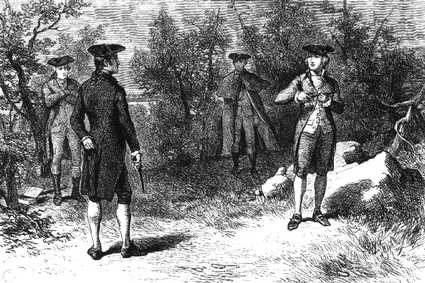
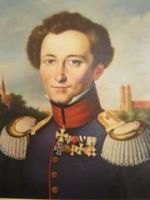
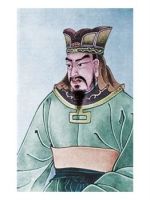
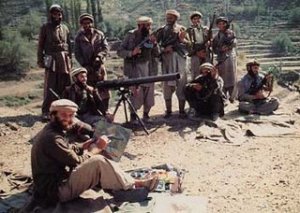 On the morning of February 15th, 1989, after a war of unexpected length and surprising brutality, the last soldier of the Soviet Red Army, its commanding general Boris Gromov, crossed the bridge at Termez out of Afghanistan and back home to the U.S.S.R., thus ending the ruinous conflict.
On the morning of February 15th, 1989, after a war of unexpected length and surprising brutality, the last soldier of the Soviet Red Army, its commanding general Boris Gromov, crossed the bridge at Termez out of Afghanistan and back home to the U.S.S.R., thus ending the ruinous conflict.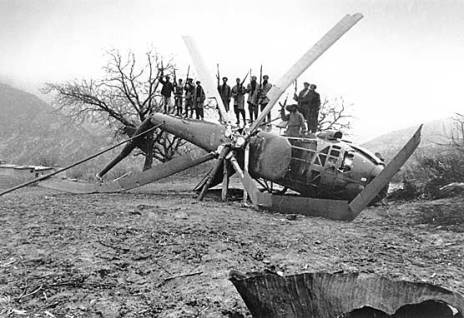
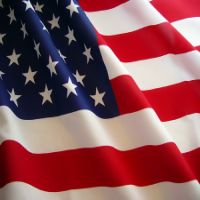 It seems that Past Tense should perhaps change it’s name to Test Tense, as three out of the last fours posts have involved a test of some sort, and one that one wasn’t much of a post at all, just a picture. I could say that I’m just trying to better educate the blog-reading public, and while that is partially true, it’s really just because I’m lazy. I didn’t even come up with these tests. But in an effort to keep this blog from completely dying, I figure lazy posting is better than no posting at all. And so I present to you yet another test.
It seems that Past Tense should perhaps change it’s name to Test Tense, as three out of the last fours posts have involved a test of some sort, and one that one wasn’t much of a post at all, just a picture. I could say that I’m just trying to better educate the blog-reading public, and while that is partially true, it’s really just because I’m lazy. I didn’t even come up with these tests. But in an effort to keep this blog from completely dying, I figure lazy posting is better than no posting at all. And so I present to you yet another test.